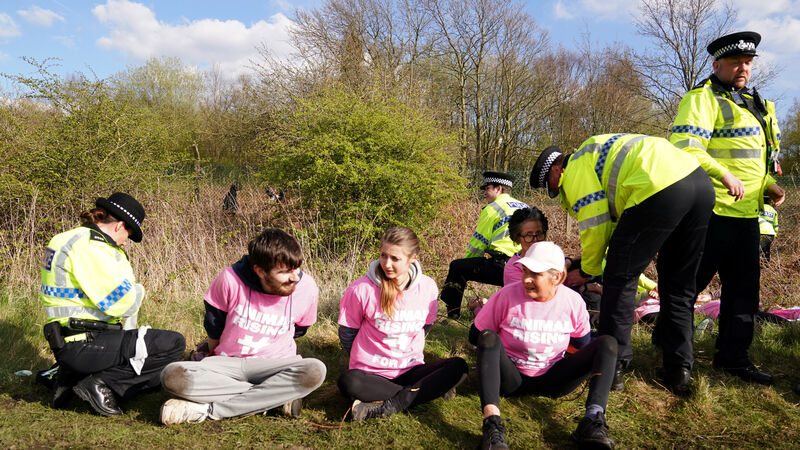Irish Examiner view: Paying price for 'peaceful' protesting

Protesters are detained by police during day three of the Randox Grand National Festival at Aintree Racecourse, Liverpool.
In the seminal book the young thug Alex, who has an obsessive taste for “ultra-violence”, is subjected by the state to an extreme form of aversion therapy. The idea is to forcibly reform him so he can return to take his place among fellow citizens without causing further harm.
The dystopian novel is presented as a parable between free choice and the collective rights of society. But what is often forgotten is that the government is keen on the mind-controlling “Ludivico Technique” because of economic necessity.












